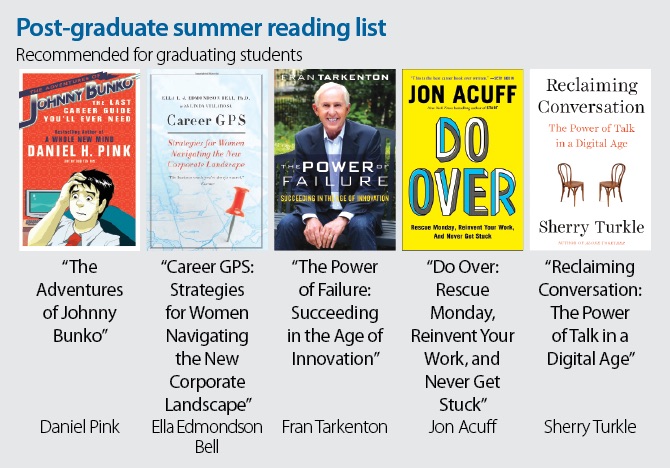A
As college graduation ceremonies take place this spring, we wanted to address common misperceptions of aspiring sports business professionals that can negatively affect career development. The purpose of tackling these myths is to provide practical recommendations so that college students, especially those who are graduating, better understand how to add value to an organization and make themselves indispensable.
■ Myth 1: It does not hurt to ask, and I can be close to completely accurate.
Reality: Sports organizations typically do not provide new hires with a syllabus or detailed instructions/checklist for each project. Aspiring sports business professionals will be required to solve problems independently and are encouraged to embrace the following formula: ambiguity + uncertainty = opportunity. Each question you ask a colleague or supervisor results in a debit (i.e., use of time and energy). Instead of making repeated account withdrawals, focus instead on making frequent value-added credits to your “career savings account” by taking initiative and exceeding expectations with exceptional effort. To thrive in the sports business industry, you must be able to successfully separate a series of similar tasks. Exercise your mind more than your smartphone.
Attention to detail is also vital. Ninety-five percent accuracy when you send projects to internal and/or external clients does not earn you an “A.” Emphasize accuracy as much as you concentrate on efficiency/completion. Do not be afraid to make excellent mistakes, yet avoid errors that are easily preventable.
■ Myth 2: I am going to be the general manager of a professional sports team.
Reality: Sports business programs are not designed to prepare the next generation of general managers or sports agents. Students are advised to find the “open industry lanes” and then fill those lanes by developing the requisite substantive skill sets and gaining practical experience through internships and other experiential learning opportunities. Current open lanes include business analytics (i.e., data-driven decision making), monetizing social and digital media marketing, and international business development. There are many more jobs in revenue-generating positions than in revenue-spending positions. Sports organizations always seem to find a permanent role for individuals who excel at selling tickets, sponsorships and other inventory.
■ Myth 3: My social media accounts will not (and should not) affect my job prospects.
Reality: Legendary UCLA basketball coach John Wooden often said, “Your character is what you really are, while your reputation is merely what others think you are.” Students are encouraged to review their social media accounts and ask themselves if they would be comfortable showing the accounts to a hiring manager during an interview. Sports organizations seek to hire employees who are dependable, coachable, diligent, professional and enthusiastic. There are no substitutes for honesty and integrity. Be compelling at all times.
Expect an employer to review all of your social media content during the candidate screening and interview process. A job candidate’s social media accounts provide prospective employers with an effective and efficient talent and character evaluation platform. Unprofessional social media posts (text and images) can quickly derail potential job opportunities. However, students also can leverage the power of social media to differentiate themselves in an extremely crowded and competitive marketplace. A well-developed LinkedIn profile will assist students in connecting with industry professionals in addition to defining a job seeker’s professional brand. Students also can use Twitter to post content related to their career objectives as well as to meaningfully engage in sports business Twitter forums such as #sbchat moderated by industry leaders J.W. Cannon and Lou Imbriano.
■ Myth 4: It is too early to think about post-graduation employment. I’ll apply for jobs when graduation gets closer.
Reality: While in college, students should optimize the usefulness of having an email account that ends in “.edu.” Students are encouraged to mail handwritten letters to sports business professionals asking to meet for coffee or lunch to learn more about strategies for breaking into the industry. Sports business leaders (and college professors) are usually much more willing to meet with students who are eager to learn more about potential career paths as compared with recent graduates who are unemployed. The key is to build relationships before you need to build relationships.
Reach out to sports organizations when you can help, not when you need help. For example, students can volunteer at local sports events and send relevant current issue articles to sports business industry mentors. Job prospects often depend on who knows you, who knows what you know, and when people know you. Author Jon Acuff provides students with a useful formula for breaking into and excelling in the sport business industry: relationships + skills + character x hustle = your career savings account.
■ Myth 5: The internship/job is about me.
Reality: Job openings are posted because companies have a problem/challenge and need a solution. Stay humble and remain relentless yet also be patient. Focus on helping your new employer increase revenue, reduce costs and make a positive impact in the community. Remember that “responsible for” is not equivalent to “successful at.” Focus on being the best entry-level employee at the organization. Title changes and salary increases will be a natural byproduct of having an unparalleled work ethic, an unrivaled positive attitude, and an eagerness to evolve and learn every day at work.
C. Keith Harrison (carlton.harrison@ucf.edu) is senior faculty member and an associate director in the DeVos Graduate Sport Business Management Program at the University of Central Florida. Scott Bukstein (scott.bukstein@ucf.edu) is an associate director in the DeVos Graduate Sport Business Management Program and director of the undergraduate Sport Business Management Program at UCF.






